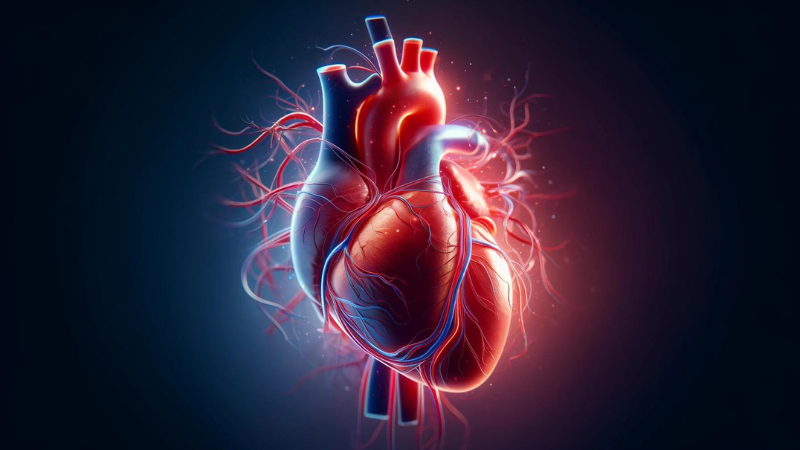Understanding the Warning Signs: Essential Heart Attack Awareness for a Healthier Future
Sep 21, 2024
How is Cardiac Arrest Different from a Heart Attack?
Cardiac arrest and heart attack are often used interchangeably, but they are distinct medical emergencies with different causes, symptoms, and treatments. Understanding the difference between these two conditions is crucial for appropriate medical intervention, and knowing how to respond can save lives. Below is a detailed look at how cardiac arrest and heart attack differ.
What is a Heart Attack?
A heart attack, or myocardial infarction, occurs when the blood flow to a part of the heart is blocked, usually by a clot in one of the coronary arteries. This blockage prevents oxygen-rich blood from reaching that section of the heart muscle, causing it to die. Over time, the heart's ability to pump blood effectively is compromised, which can lead to severe complications or even death if not treated promptly.
Symptoms of a Heart Attack
- Chest pain or discomfort, often described as pressure or squeezing
- Pain in arms, back, neck, jaw, or stomach
- Shortness of breath
- Cold sweats
- Nausea or vomiting
- Lightheadedness or dizziness
Heart attack symptoms can be gradual or sudden and vary between individuals. Women may experience more atypical symptoms such as fatigue, anxiety, or abdominal pain.
What is Cardiac Arrest?
Cardiac arrest, on the other hand, is when the heart suddenly stops beating. Unlike a heart attack, cardiac arrest is an electrical malfunction in the heart that disrupts its pumping action, leading to a halt in blood flow to the brain, lungs, and other vital organs. It can occur as a result of various heart conditions, including arrhythmias or after a heart attack.
Symptoms of Cardiac Arrest
- Sudden collapse or loss of consciousness
- No pulse
- No breathing or abnormal breathing (gasping)
- Sudden dizziness or fainting
Cardiac arrest is almost always fatal if the patient doesn't receive immediate medical attention, typically CPR (cardiopulmonary resuscitation) or defibrillation.
Key Differences Between Cardiac Arrest and Heart Attack
Though cardiac arrest and heart attack can be related, they have different causes and symptoms. Here are some key differences:
- Cause: A heart attack is caused by a blockage in the arteries supplying blood to the heart, whereas cardiac arrest is caused by an electrical disturbance that disrupts the heart's rhythm.
- Symptoms: A heart attack may involve chest pain, while cardiac arrest is characterized by a sudden loss of consciousness and no detectable pulse.
- Onset: Heart attacks may have warning signs that develop over hours, days, or even weeks. Cardiac arrest typically occurs suddenly and without warning.
- Treatment: A heart attack often requires medication and surgical procedures like angioplasty or bypass surgery, while cardiac arrest requires immediate CPR or defibrillation to restore normal heart rhythm.
Can a Heart Attack Lead to Cardiac Arrest?
Yes, a heart attack can sometimes trigger cardiac arrest. In some cases, the heart’s electrical system becomes damaged during a heart attack, which can lead to life-threatening arrhythmias and cardiac arrest. In fact, many people who experience cardiac arrest outside of a hospital setting have had a heart attack before.
What Should You Do in Case of a Heart Attack or Cardiac Arrest?
- Heart Attack: If you suspect someone is having a heart attack, call emergency services immediately. If available, the patient should chew an aspirin (unless allergic) and rest until medical help arrives.
- Cardiac Arrest: In the event of a cardiac arrest, call emergency services immediately, and begin CPR. If a defibrillator is available, use it to deliver an electric shock to the heart to restore its rhythm.
Prevention and Risk Factors
Both cardiac arrest and heart attack share common risk factors, such as:
- Smoking
- High blood pressure
- High cholesterol
- Obesity
- Sedentary lifestyle
- Diabetes
- Family history of heart disease
Regular exercise, a healthy diet, and avoiding smoking are among the key lifestyle changes that can reduce your risk. If you have a known heart condition, following your doctor's advice and taking prescribed medications can help manage your risk.
Conclusion
While cardiac arrest and heart attack are different conditions, both are medical emergencies that require immediate attention. A heart attack is a "plumbing" issue, where blood flow to the heart is blocked, while cardiac arrest is an "electrical" problem, where the heart suddenly stops beating. Recognizing the symptoms and understanding how to respond can save lives. For more information on heart health, treatment options, and tips for prevention, visit Steris Online Cardiology Section. This article explains the critical differences between cardiac arrest and heart attack and provides essential information on symptoms, causes, and how to respond. Make sure to consult healthcare professionals for personalized medical advice if you or someone you know is at risk for heart conditions.
Recent Post

How Multivitamin, Multimineral and Amino Acid Tablets with Taurine & Ginseng Support Active Lifestyles

Cinacalcet Tablets 60 mg: When They’re Used and What to Expect

What to Expect When Taking Opipramol 100 mg: A First-Timer’s Guide

How Do Empagliflozin, Linagliptin, and Metformin ER Work Together for Diabetes Control?

Why Doctors Prescribe Pregabalin with Epalrestat and Methylcobalamin for Nerve Pain Steris Healthcare.

Steris Healthcare Pvt Ltd Radiates Excellence at the Dec 2025 ZEE Media Global Innovation & Leadership Summit, London!

Terbinafine 250mg & Itraconazole 100mg: The Ultimate Solution for Stubborn Fungal Infections Steris Healthcare.

Understanding Nebivolol 5mg & S-Amlodipine 2.5mg: A Powerful Combo for Heart Health

FLAVOSHIELD 500: The Complete Guide to Micronized Purified Flavonoid Fraction for Venous Health Steris Healthcare.

Unlocking Relief: How Egolix 150mg Treats Endometriosis Pain Steris Healthcare.

